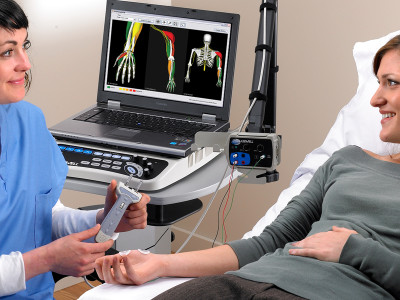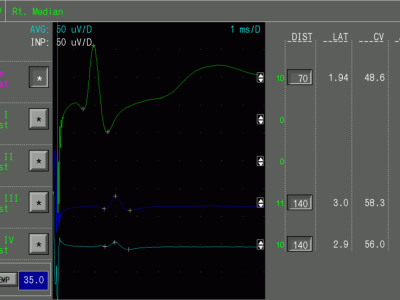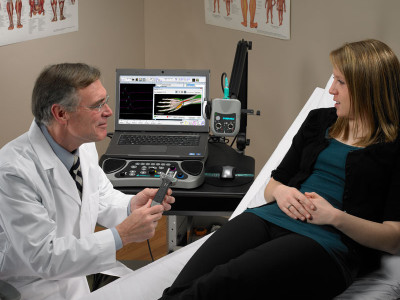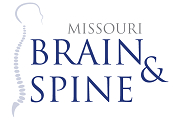Nerve Conduction Velocity (NCV)



A
nerve conduction study (NCS), also called a nerve conduction velocity (NCV) test–is a measurement of the speed of conduction of an electrical impulse through a nerve. NCV can determine nerve damage and destruction.
Nerve conduction velocity is often used along with an EMG to differentiate a nerve disorder from a muscle disorder. NCS detects a problem with the nerve whereas an EMG detects whether the muscle is functioning properly in response to the nerve’s stimulus.
The speed of nerve conduction is related to the diameter of the nerve and the degree of myelination (a myelin sheath is a type of “insulation” around the nerve). A normally functioning nerve will transmit a stronger and faster signal than a damaged nerve. This is kind of like an electric wire with rubber or plastic insulation around it. The larger the wire or electric cable and the better the insulation, the more consistent and stronger the signal.
Abnormal results may be caused by some sort of neuropathy (damage to the nerve) that can result from a contusion or traumatic injury to a nerve. Various diseases can also cause the impulses to slow down.
Nerve conduction velocity is often used along with an EMG to differentiate a nerve disorder from a muscle disorder. NCS detects a problem with the nerve whereas an EMG detects whether the muscle is functioning properly in response to the nerve’s stimulus.
Diseases or conditions that may be evaluated with NCV include, but are not limited to, the following:
- Peripheral Nerve Injury
- Carpal Tunnel Syndrome
- Guillain-Barré Syndrome
- Charcot-Marie-Tooth Disease
- Herniated Disk Disease
- Chronic inflammatory polyneuropathy and neuropathy. These are conditions resulting from diabetes or alcoholism.
- Sciatic Nerve Problems
- Pinched Nerves
- Identify the cause of symptoms such as numbness, tingling, and continuous pain.
